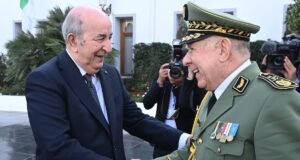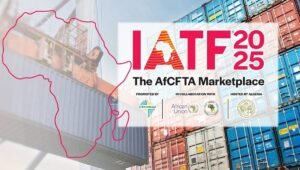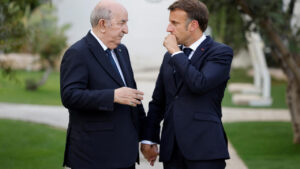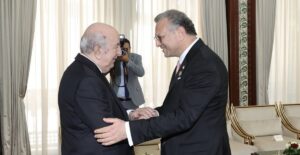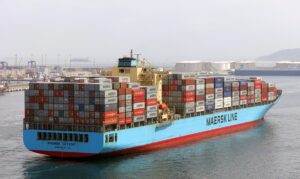Algeria's attempts to catch up with Morocco in Africa: too little, too late!!
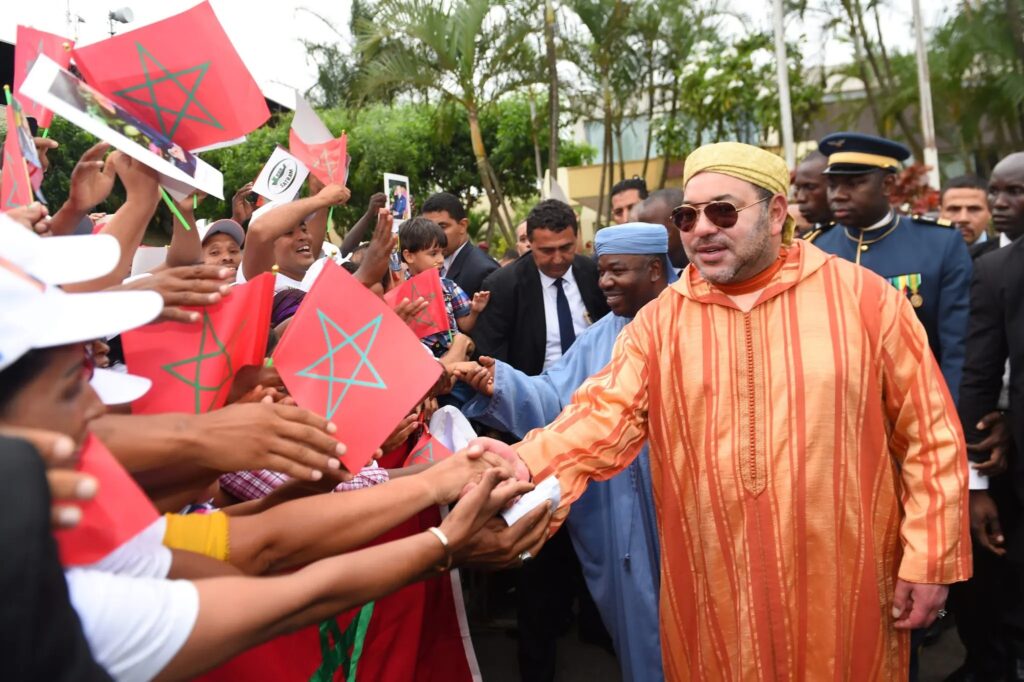
Recently, the Algerian regime, through its diplomacy and media, has been trying to suggest that President Tebboune's era is witnessing a "boom" in Algeria's African role, and a return to its "honorable" Cold War past in the 1970s and 1980s. This is evident in its hosting of this or that president, or the visits of its Foreign Minister Ahmed Attaf here and there, without a unifying thread or clear strategy—except for the continuation of the undeclared war with the "Moroccan enemy" through non-military means! However, the regime and its media mouthpieces fail to realize that building a regional and continental role does not come about through a visit here and a message there. Rather, it is a complex and difficult process of building, responding to the interests of the various parties and achieving real benefits for both, without compromising the sovereignty of either. Furthermore, the relationship must be clear, and conflicting signals must not be emitted from the various institutions of one country towards another (some positive, some negative). These are all conditions that the Algerian regime is unable to meet, which precludes the military regime from having such an African role. How so?
If we assume, for the sake of argument, that the Algerian regime has abandoned the methods of the 1970s and 1980s, and stopped the policy of buying positions from the leaders of African countries through “petrodollar suitcases,” realizing the changing conditions in many—if not most—countries on this continent, then would the Algerian regime do well to build a role based on shared interests with the countries of the continent, especially those south of the Sahara, which it is primarily targeting these days, after realizing that the limits of its influence in its immediate surroundings (North Africa) are almost limited to Kais Saied’s Tunisia!!
First, it's useful to take a look at Algeria's economic interests in sub-Saharan Africa. Do Algeria's imports and exports to these countries represent a value that underlies these "partners"' commitment to sustaining these economic relations? Figures for 2022 indicate that Algeria's total exports to the African continent do not exceed $2.2 billion, out of its total exports of $58.6 billion. This is understandable, given that 901% of Algeria's exports are of a single commodity: oil and gas, and go exclusively to its northern neighbors. However, if we look at the share of sub-Saharan countries in this already meager share, we find that it does not exceed $340 million, or only $151% of its exports to the African continent (851% of Algeria's African exports go to its immediate neighbors in the north of the continent), which represents 0.61% of its total exports to the world! The situation of imports from sub-Saharan African countries is even worse, as they do not exceed 7.51 TP3T of its total African imports (Algeria imports 92.51 TP3T of its African imports from its northern neighbors), or 0.31 TP3T of its total imports from countries worldwide. With these figures, it is impossible to talk about economic interests between Algeria and any African country, so that one should think twice before attempting to undermine this relationship. The absence of an economic dimension in Algeria's desired continental role is confirmed when we realize that none of its exports or imports go beyond raw materials in general, excluding manufactured goods or added value.
The difficulty of Algeria's economic weakness stems from the fact that the burden falls on the government, with the complete absence of Algerian private sector contribution, given the centralized, closed nature of the Algerian "socialist" economy. However, if we compare this to the nature of Morocco's economic relations with the countries of the African continent, we find that the private sector bears the lion's share of this Moroccan "expansion," particularly in the banking, fertilizer, telecommunications, transportation, infrastructure, and modern technology sectors. This establishes benefits that the African countries involved in these partnerships are difficult to dispense with, given the contribution Moroccan companies make to the national economy and the solution to the unemployment problem in these countries.
Moving to the political arena, the Algerian regime hardly knows the meaning of this word, both domestically and internationally. It has not yet emerged from the Cold War era, given the aging of those holding the reins of power in the country, both politically and militarily (most of whom are in their mid-seventies). Perhaps the tense relations with its direct and indirect neighbors are the best evidence of its failure to recognize the equality that should characterize its relations with other African countries, and its practice of blackmail and threats instead of understanding and preserving space for the opposing party's sovereignty. These descriptions apply to Algeria's relationship with its direct neighbors (Mauritania, Mali, Niger, Libya, and Tunisia, not to mention Morocco), which sends negative messages to the rest of the continent's more distant countries. Indeed, the duality of decision-making within the military regime has caused a further deterioration of Algeria’s traditional relations. An example of this is General Chengriha’s “bravado” in Rwanda, which came in the context of his attempt to halt the improvement of this country’s relations with Morocco. However, its results were disastrous, as the Democratic Republic of the Congo summoned the Algerian ambassador to protest Chengriha’s interference in its internal affairs, by supporting the separatists in the east of the country supported by Rwanda. The matter even reached the point of “destroying” Algeria’s relationship with one of its historical allies, Uganda, whose President Museveni clearly demonstrated this a few days ago, during his “humiliating” reception of the Algerian Foreign Minister, Ahmed Attaf!
Perhaps what exacerbates the Algerian regime's position on the African continent, and makes it almost limit itself to South Africa, putting all its eggs in that basket, in addition to all of the above, of course, is that, due to its calcified and outdated position, its dilapidated structures, and its military nature, it lacks any capacity for creative thinking (outside the box) and for undertaking initiatives that suit the new nature of today's global economy and politics. This is evident in the fact that its African initiatives are limited to paving a road through Mauritania and Niger, without considering the economic feasibility of these roads, whether Algeria has anything to export to these countries, and whether the few Algerian exporters who do have anything to export will actually use them! Meanwhile, Morocco's creative thinking is evident "above board," as it presented the initiative to establish the South Atlantic Treaty Organization, followed by the initiative to link the Sahel countries to the Atlantic Ocean, and before that, it placed itself at the service of food security in the African continent through its vast fertilizer resources, among other initiatives that it is striving to present to its partners on the continent, which earns it their trust.
In conclusion, for structural reasons related to the regime’s military structure and its ideological nature that revolves around hostility towards Morocco, despite the fact that everyone is familiar - with the exception of the generals, of course - with the famous saying “hatred does not make politics” or “hatred is not politics”, it can be said with confidence that the famous English proverb: Too little, too late! applies most strongly to Algeria’s “very small” and “too late” steps towards the African continent, as they come after it began to lose its African status in parallel with its Black Decade more than three decades ago; and that there is no way to “theoretically” restore Algeria’s African weight except through a radical change to this regime, sweeping the military from all its joints, and reconciling with its immediate surroundings first, before seeking the trust of distant countries!!
